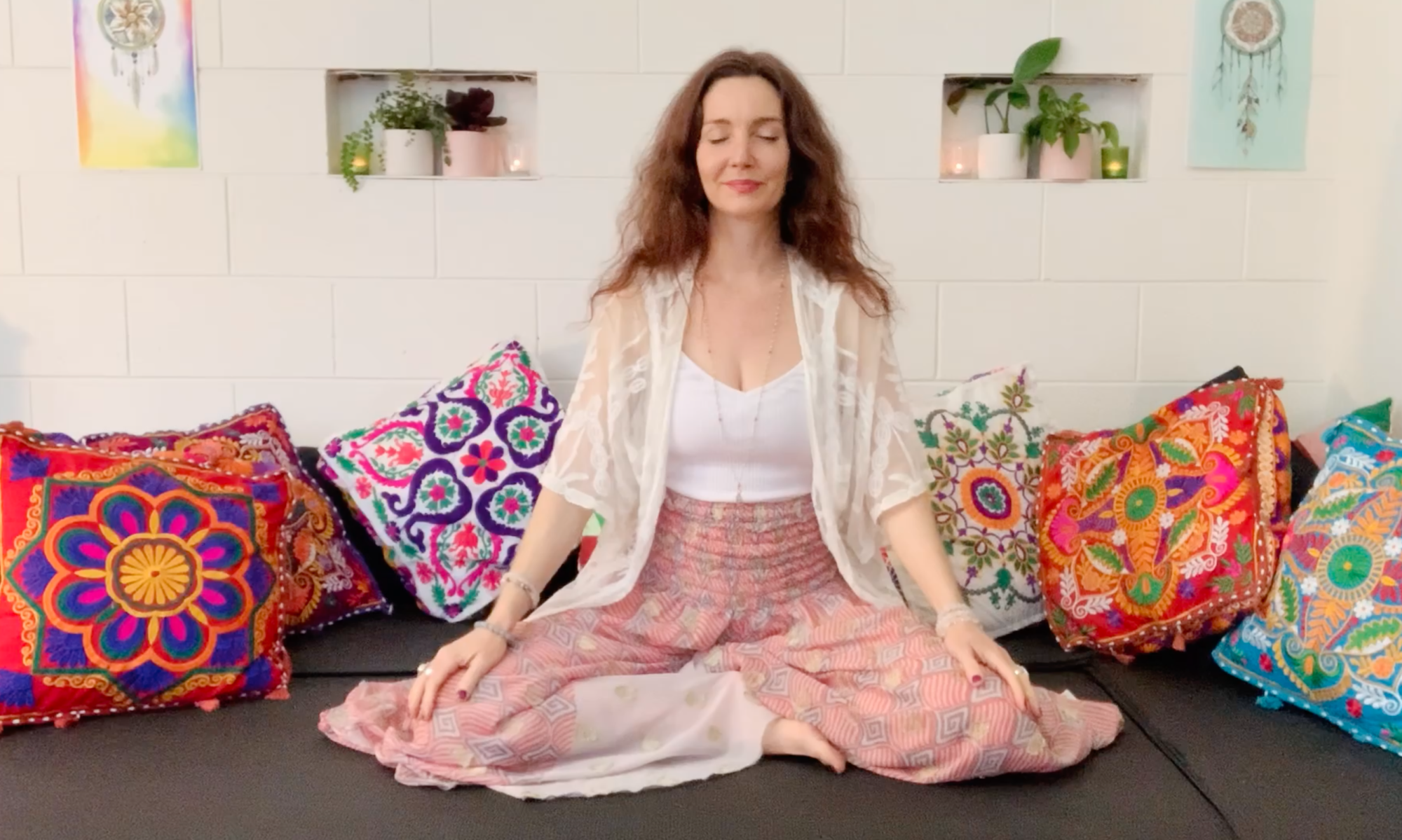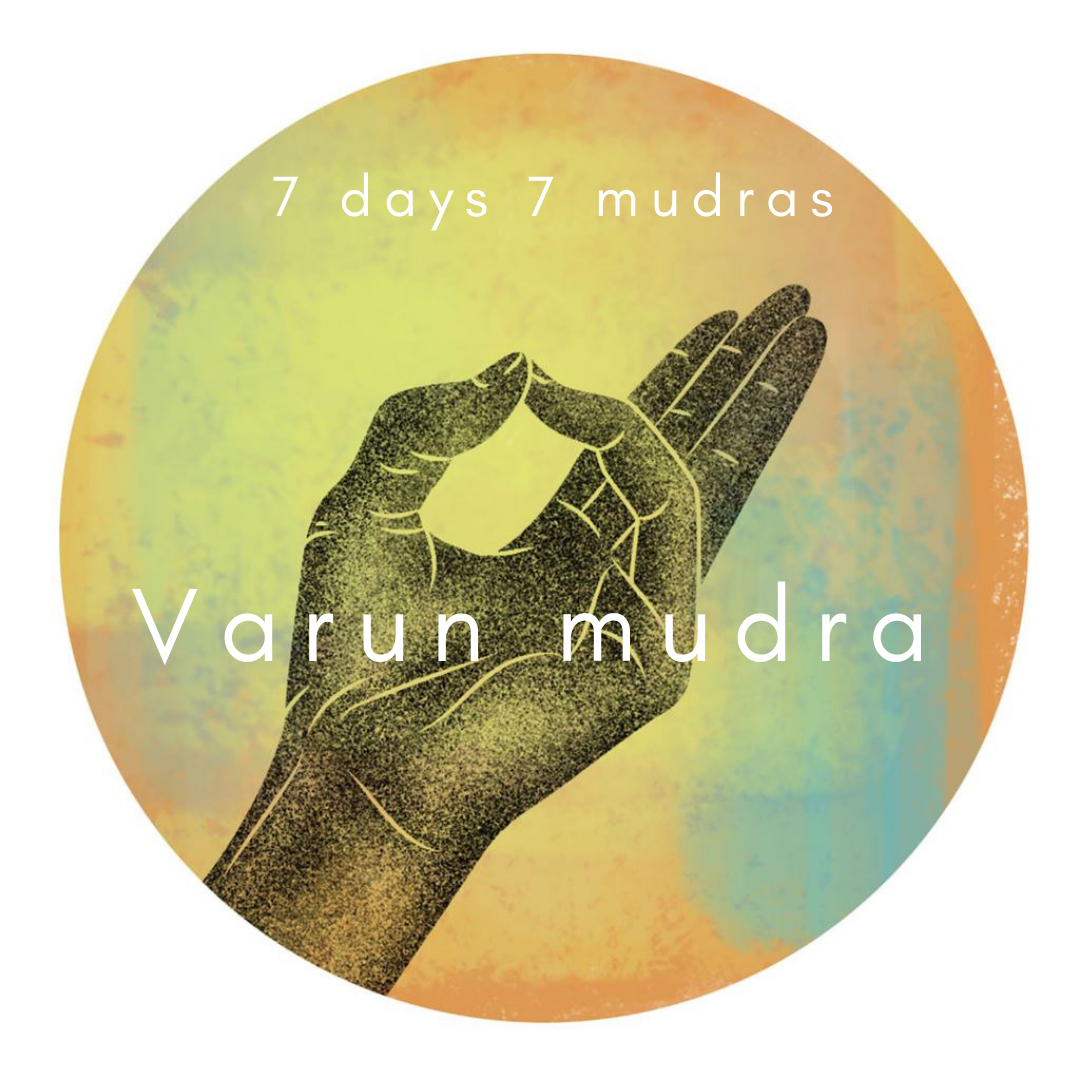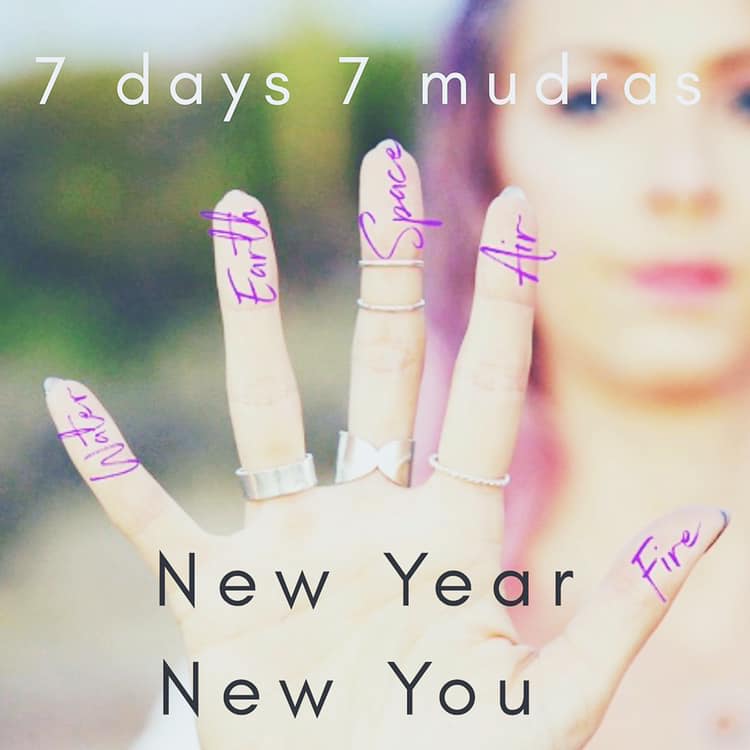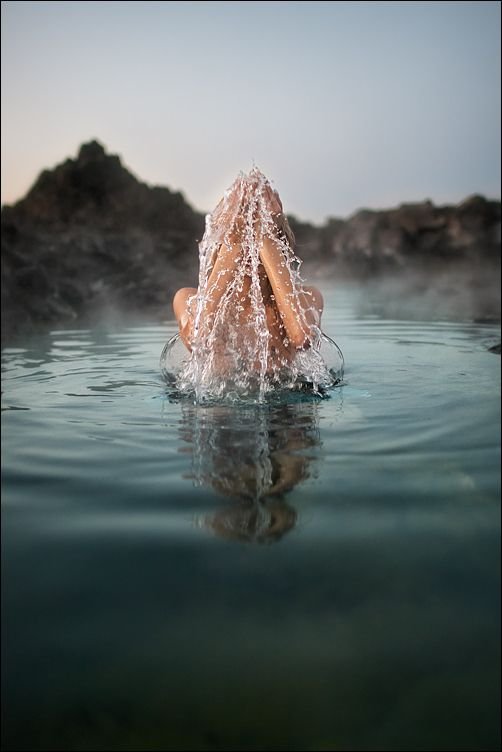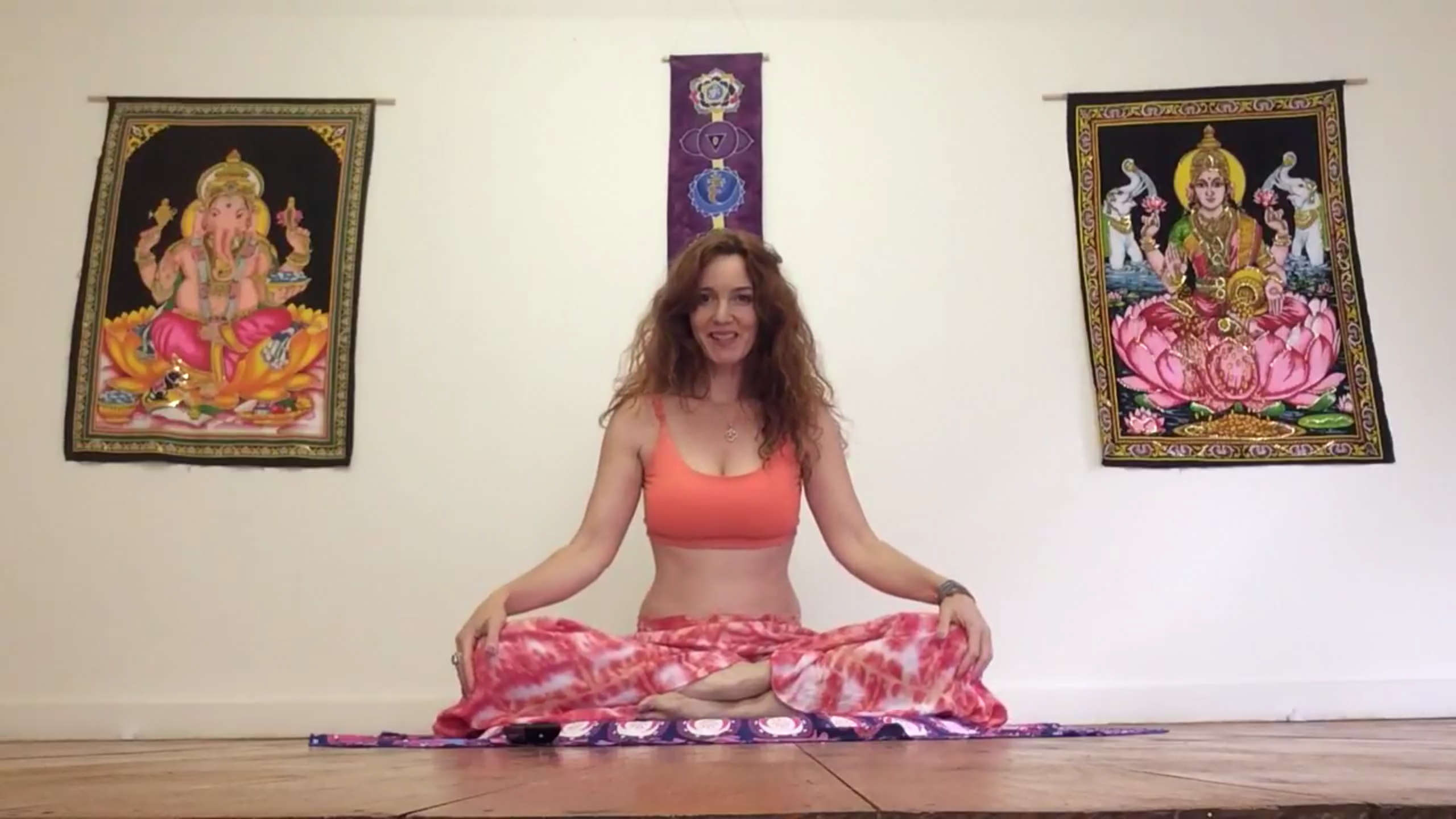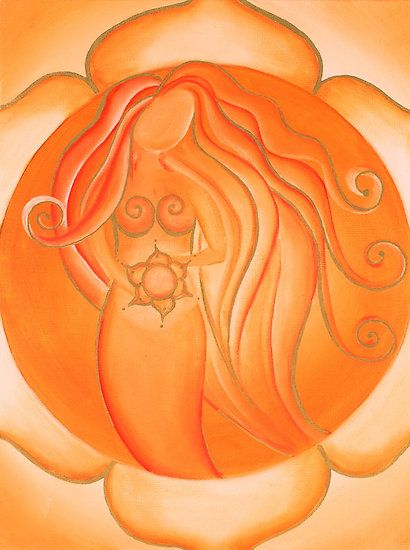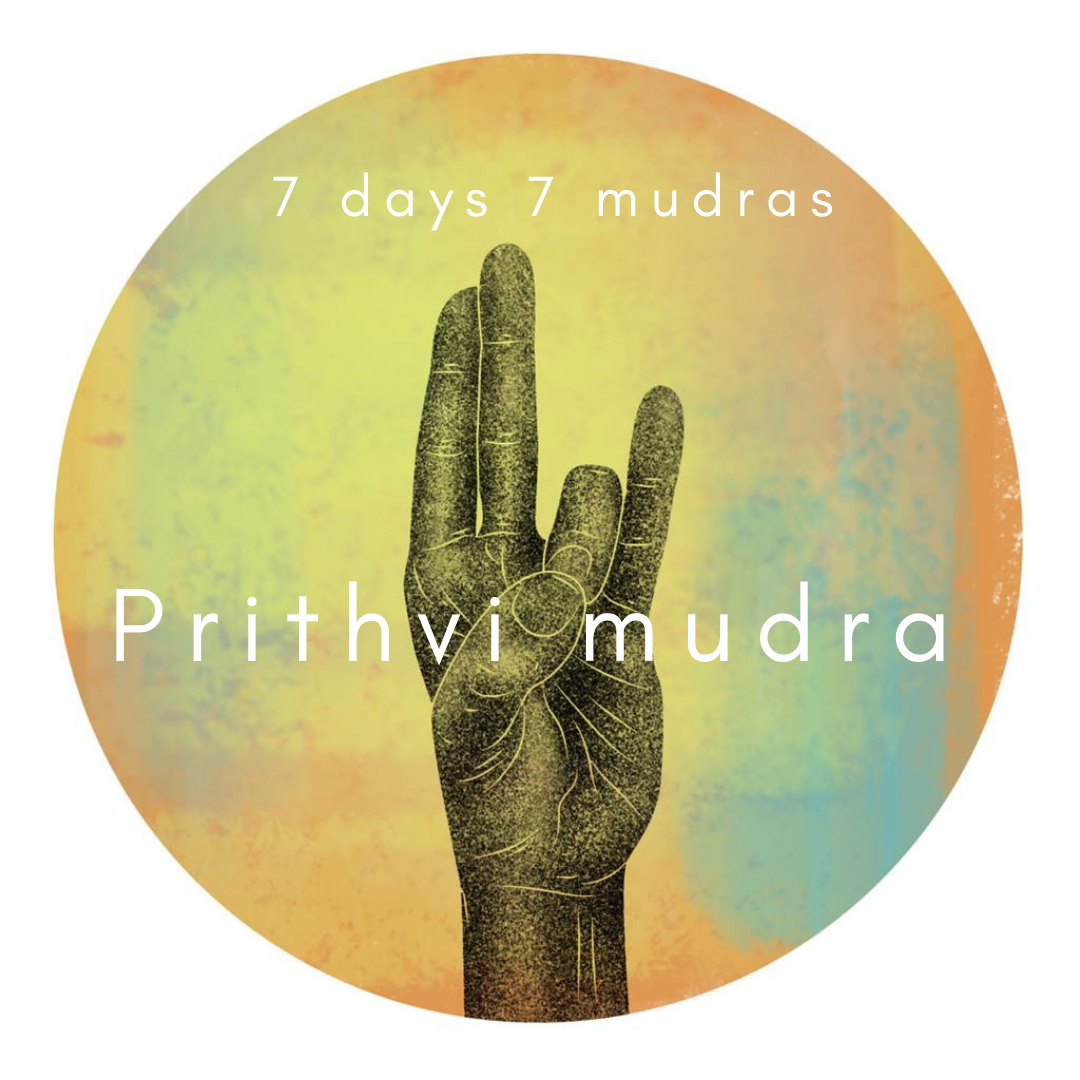
One of the powerful technologies I’ve learned is mudras. And I want share them with you because they are super-easy, you can do them anywhere and they work instantly.
Mudras are a tool to create certain energies within the body. My next chakra series gives you an introduction into working with mudras in your everyday life, to increase vitality, instantly create calm and work with the multitudes of health giving effects mudras bring to your body, mind and spirit.
The use of mudras, in the practice of yoga are a powerful tool for self-care and empowerment. With yoga the intention is to draw oneself inward. Mudras allow us to go inward and recharge our energy levels. The term mudra applies to the use of hand (also eye and full body) gestures that carry specific goals of channeling your body’s energy flow.
I like to think of it as our Sacred circuitry.
Join me for a 7 week immersion into your sacred circuitry.
Check out the upcoming Power Mudra + Chakra Yoga series here
PRITHVI MUDRA
Prithvi means “the vast one” and is also the name for the earth element in Sanskrit.
It is believed that the prithvi mudra is capable of increasing the earth element within the individual, which strengthens and heals the physical body.
The prithvi mudra is considered to be a very powerful mudra that is capable of healing many ailments, some of which include chronic fatigue, osteoporosis, weight loss, convalescence or paralysis, burning sensations throughout the body, ulcers, and nail, hair or skin issues.
When used as part of a spiritual practice, the prithvi mudra is thought to influence the muladhara (root) chakra, which governs the individual’s sense of stability, rootedness and security. This chakra is also associated with instincts and one’s primal nature.
HOW TO DO THE PRITHVI MUDRA
The tips of the ring fingers are pressed to the tips of the thumbs on each hand, while the other fingers are kept straight.
As with any hasta (hand) mudra, Prithvi mudra can be practiced while seated, prone, standing or even walking – as long as the body is relaxed and the posture is symmetrical. It is particularly beneficial when meditating.
Therapeutic mudras are believed to balance the elements in the body within 45 minutes.
Because this is a grounding mudra, it is highly recommended to practice this mudra in a quiet setting while meditating and focusing on the breath. If possible, this should be done for 30 to 45 minutes a day, this can be broken down into shorter sets.
WHAT THE FINGER PLACEMENTS REPRESENT
The ring finger represents the earth element. It represents stability, firmness, sturdiness. Earth is called Prithvi. Hence the hand gesture made with ring finger is called Prithvi Mudra.
The thumb agni (fire) and ring finger prithvi (earth) are brought into a balanced state as the tips are joined.
MUDRA PRACTICE
Although mudras show immediate effects, most need time 30-45 minutes (this can be spread throughout the day) over an extended period of time.
I recommend using this mudra in a meditation practice, either 30 minutes, two lots of 20 minutes, three lots of 15 minutes or five rounds of 5 minutes across the day.
Because this is a grounding mudra, it is highly recommended to practice this mudra in a quiet setting while meditating and focusing on the breath. If possible, this should be done for 30 to 45 minutes a day, this can be broken down into shorter sets.
BENEFITS
Prithvi mudra has a long list of benefits including:
• Balances the element Earth in your body
• Increases and stabilises the energy in your root chakra
• It improves body weight, blood circulation, digestive power and vitamin deficiency associated problems
• Regular practice of this mudra helps to improve the body strength
• It keeps the body stable
• Improves self confidence, gets rid of confusion, anxiety, fearfulness, fickle mindedness
• Makes the body and mind more stable and concentrated
• It is famously known for improving weight and hair growth, conditions skin, nails and bones
• Menstrual problems
• Assists throat problems including sore throat, hoarse strained voice
• Assists overactive thyroid/hypothyroidism
• Chronic fatigue
• Issues relating to the nose
• Sinusitis
• Influenza
• Varicose veins
• Urticaria or hives, rashes
• Ulcers
• Inflammation
• Piles
• Premature aging
• Memory loss
• Reduces all physical weaknesses
• Promotes body functionality
• It enhances love, compassion, tolerance and joy
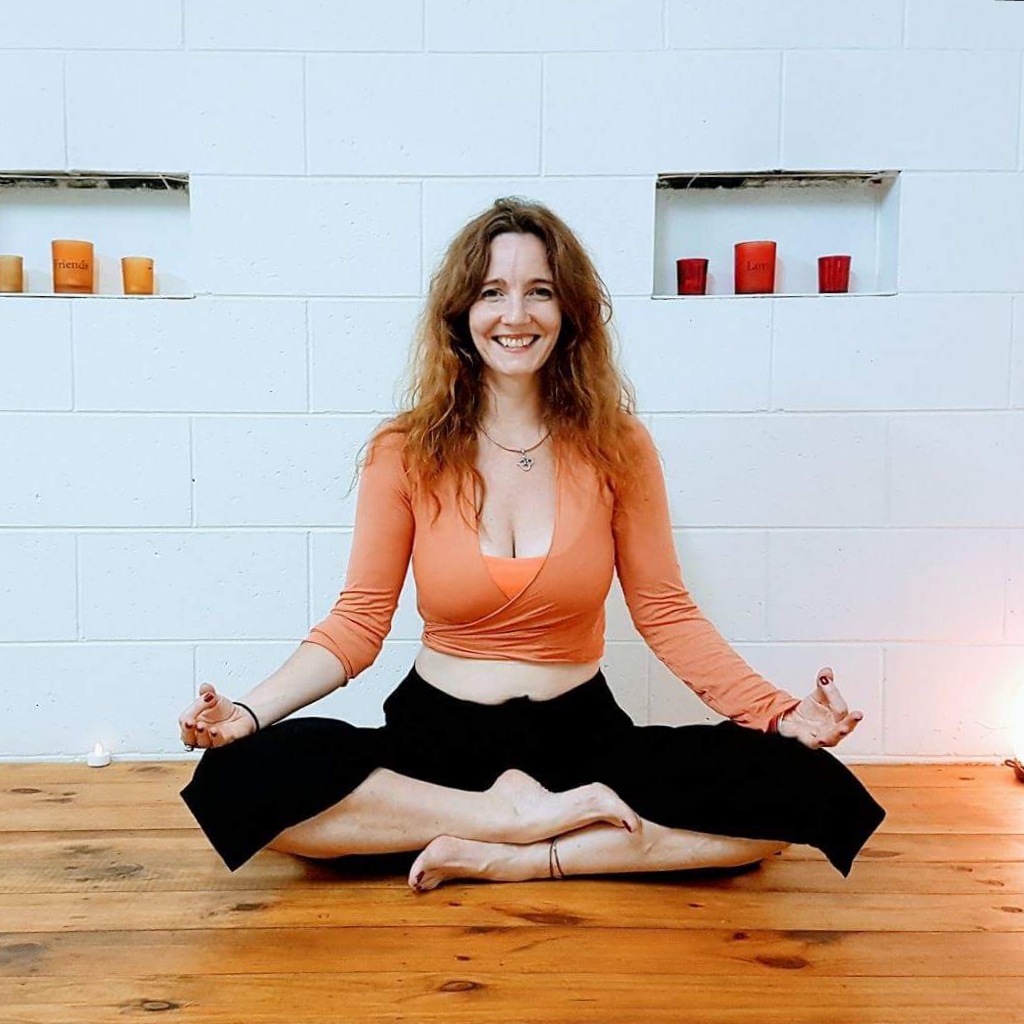
WHAT ARE MUDRAS AND WHY ARE THEY POWERFUL?
In Sanskrit, mudra means “seal”, “mark” or “gesture.” Mudras are gestures (often of the hands but in Sattva Yoga we also use mudras of the eyes and tongue, and other body techniques).
Mudras act as psychic energy seals that create energetic shifts in the mental, physical and energetic body through guiding the energetic flow and harnesssing the bodily reflex stimulus to the brain.
The tips of your fingers, crown of your head, and feet are where energy leaves your body. You can practice mudras to channel that energy back into your body.
THE ELEMENTS OF THE HAND
The hand has three gunas, or qualities, and every finger has its own energy and its own elements.
In yogic philosophy the three gunas, fundamental forces, are tamas, rajas, and sattva. They interact to create all of the known Universe (Prakriti), and can be increased or decreased by using mudras.
Sattva manifests as balance, inspiration, and knowledge of what is real. Tamas is a heavy, mindless energy that causes ignorance and inaction. Rajas is the energy of change, manifesting as passion, pain, desire, and effort, and it can lead you to sattva or tamas but is often characterized as attachment to outcomes and unsteadiness.
Your hand has each of these three guna characteristics, and each finger is associated with an element.
Thumb Divine activator, Agni (Fire), Manipura chakra
Index Finger Individual Soul (Jiva), Vaayu (Air), Anahata chakra
Middle Finger Sattva Guna (Purity/Light), Akasha (Ether/Space), Vissuddha chakra
Ring Finger Rajas Guna (Passion/Fire) Prithvi (Earth), Muladhara chakra
Little Finger Tamas Guna (Inertia/Darkness) Jal (Water), Swadisthana chakra
A MUDRA FOR EVERYTHING
You can use mudras to increase, decrease or stabilise the gunas and specific elements. Whatever you need in your life, there is a mudra for it!
Some mudras show immediate effects, yet most need time 30-45 minutes (can be spread throughout the day) over an extended period of time.
You may notice some of the names I use are different from what you may be used to. My teacher comes from the Himalayan yoga tradition and so I use the names as he teaches them. Teachers from other traditions may used varied terminology.
Mudras are a powerful component of Sattva Yoga as well as a technology you can use on their own.
Over the next 7 days I am going to share my favourite mudras with you. And talk about how mudras work and what they can do for you.
I recommend trying each mudra for a day and at the end of the 7 days, if you feel inspired, choosing a mudra to practice with daily for a 21 day meditation practice or sadhana.
Drop me a comment and let me know how you go. I love hearing stories of the effects of these subtle but powerful practices.
Hari om tat sat. Namaste. Blessings.
Christina at Raw Mojo
ॐ
One of the powerful technologies I’ve learned is mudras. And I want share them with you because they are super-easy, you can do them anywhere and they work instantly.
Mudras are a tool to create certain energies within the body. My next chakra series gives you an introduction into working with mudras in your everyday life, to increase vitality, instantly create calm and work with the multitudes of health giving effects mudras bring to your body, mind and spirit.
The use of mudras, in the practice of yoga are a powerful tool for self-care and empowerment. With yoga the intention is to draw oneself inward. Mudras allow us to go inward and recharge our energy levels. The term mudra applies to the use of hand (also eye and full body) gestures that carry specific goals of channeling your body’s energy flow.
I like to think of it as our Sacred circuitry.
Join me for a 7 week immersion into your sacred circuitry.
Check out the upcoming Power Mudra + Chakra Yoga series here
Check out upcoming Sattva Yoga and Chakradance classes here
